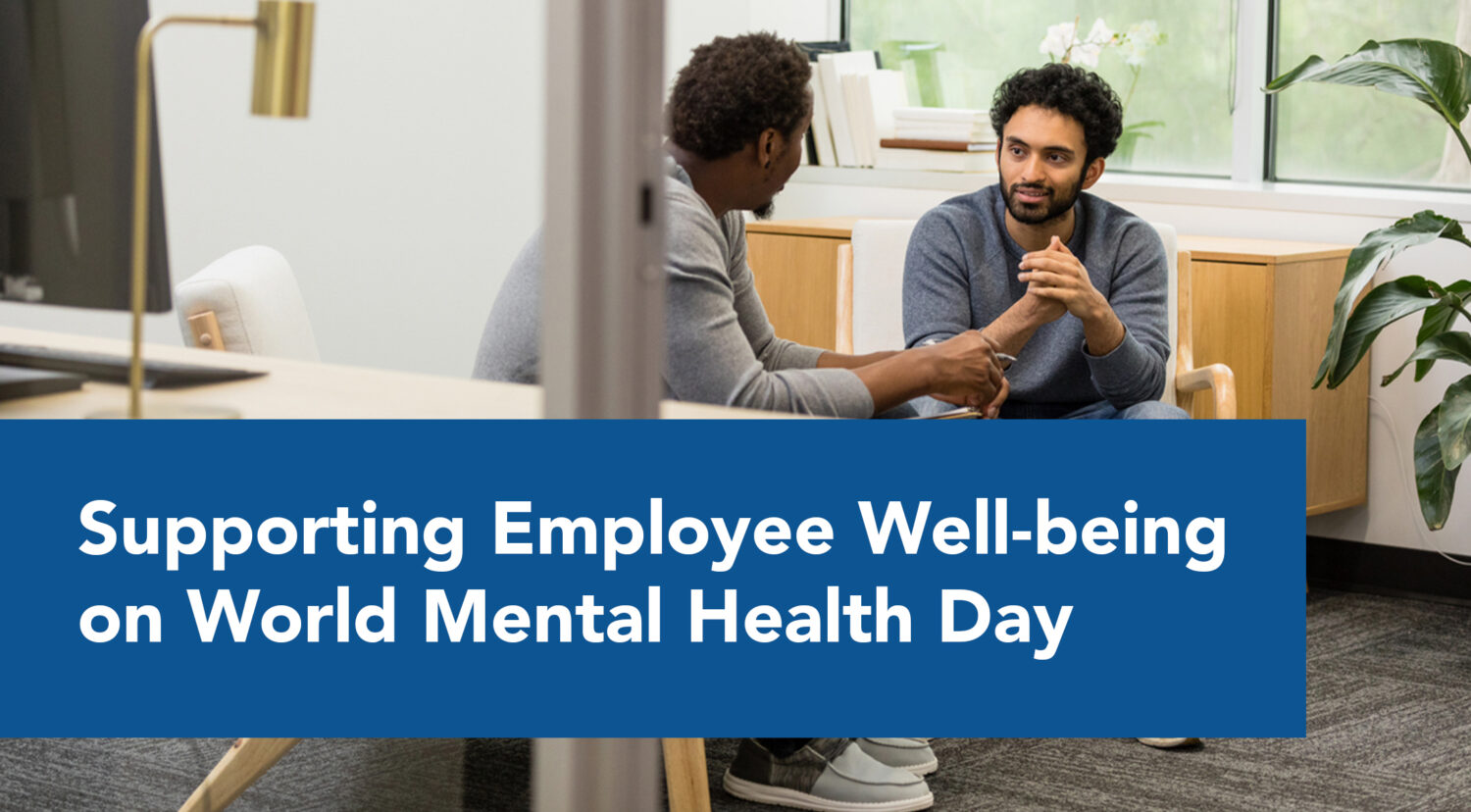

My Dear HR Professionals,
Every year on October 10th, World Mental Health Day provides us with a crucial opportunity to focus on the importance of mental health support in the workplace. It’s a reminder that mental health is just as important as physical health, and as HR professionals, we have a significant role to play in creating an environment where employees feel supported and empowered to prioritize their well-being. Let’s explore the importance of mental health awareness, share strategies for supporting employee well-being and for workplace discrimination, and discuss the role of inclusive policies in promoting a mentally healthy workplace.
The Significance of World Mental Health Day
World Mental Health Day, spearheaded by the World Health Organization, aims to raise awareness and address mental health issues worldwide. In recent years, there has been a growing recognition of how workplace culture and practices directly impact employees’ mental well-being. Employees who face high levels of stress, burnout, or a lack of support can experience a decline in both productivity and overall health.
As HR professionals, our responsibility is to create an environment where employees feel comfortable discussing their mental health, accessing resources, and maintaining a healthy work-life balance. Addressing workplace mental health isn’t just good practice—it’s essential for ensuring a healthy, productive, and engaged workforce.
Supporting Mental Health in the Workplace: Strategies for HR Professionals
- Promote Open Conversations About Mental Health:
One of the most significant barriers to addressing mental health in the workplace is stigma. Encourage open conversations about mental health by hosting awareness campaigns, lunch-and-learns, or guest speaker sessions. There might even be a need for preventing workplace harassment and workplace discrimination, particularly in the area of advancement. When leadership openly discusses mental health and well-being, it sets the tone for the entire organization and helps normalize these conversations and positive responses.
- Offer Mental Health Resources and Benefits:
Ensure that employees have access to resources that support their mental health. This includes offering Employee Assistance Programs (EAPs) that provide free, confidential counseling services, as well as ensuring mental health coverage in your employee health plans. Make sure these benefits are well-communicated so employees know how to access them.
- Provide Mental Health Training for Managers:
Equip managers with the tools and knowledge to identify signs of mental distress in their team members and offer support when needed. Managers are often the first point of contact for employees, so providing them with mental health training can help create a more compassionate and supportive workplace.
- Encourage Work-Life Balance:
High workloads and constant connectivity can lead to burnout and increased stress. Promote a healthy work-life balance by encouraging employees to take their full PTO, modeling reasonable work hours, and discouraging after-hours emails. Flexible work arrangements, such as remote work or adjustable hours, can also help employees better manage their mental health. And make sure managers (and above) respect their employees’ work-life boundaries.
- Create a Designated Mental Health and Wellness Policy:
Develop a formal policy that highlights your organization’s commitment to supporting mental health. This policy could include details on the accommodations available for mental health-related needs, guidelines on work flexibility, and resources for employees experiencing mental health challenges. This policy should be easily accessible and shared with all staff members.
- Cultivate a Culture of Empathy:
Foster an environment where employees feel comfortable approaching HR, their managers, or their peers when facing mental health challenges. Simple practices like expressing gratitude, recognizing accomplishments, and offering genuine support during difficult times can significantly improve the overall mental well-being of your workforce.
Mental Health Accommodations and Inclusive Workplaces
It’s important to remember that mental health conditions fall under the definition of a disability, and the Americans with Disabilities Act (ADA) mandates that employers provide reasonable accommodations to individuals with disabilities, including mental health conditions. This means that offering flexibility, understanding, and support to employees dealing with mental health issues isn’t just beneficial for your team; it’s also a matter of compliance.
Here are some accommodations that can help support employees with mental health needs:
- Flexible Scheduling: Allow employees to modify their work hours to accommodate therapy appointments or manage periods of heightened stress.
- Modified Work Environments: Providing a quiet workspace or allowing employees to work from home can help minimize stressors that may contribute to mental health challenges.
- Temporary Job Restructuring: Adjusting an employee’s workload or responsibilities temporarily can be an effective way to support those going through particularly challenging times.
The Benefits of Supporting Mental Health in the Workplace
Prioritizing employee mental health isn’t just the right thing to do; it’s also good for business. Companies that foster supportive mental health practices benefit from higher levels of employee engagement, lower absenteeism, and increased retention rates. Employees who feel valued and supported are more likely to be motivated, productive, and loyal to the organization.
Moreover, embracing inclusive workplace practices that consider mental health fosters a sense of belonging among employees. It sends a strong message that the company values not just the work people produce but the individuals themselves.
A Call to Action on World Mental Health Day
World Mental Health Day is a reminder for us all to continue to build workplaces where mental health is prioritized and openly discussed. As HR professionals, our actions can significantly impact how comfortable our employees feel in taking care of their mental well-being.
Let’s use this day to reevaluate our policies, promote mental health awareness, and ensure that our teams have the resources they need to thrive. Together, we can create a workplace where all employees feel supported—not just today, but every day.
Thank you for your commitment to employee well-being and for making your workplaces environments where everyone can thrive.
HR Unlimited, Inc. specializes in helping federal contractors and employers effectively meet their AAP and EEO compliance obligations. Please contact us to discuss any of your questions, concerns, or needs in this area.




